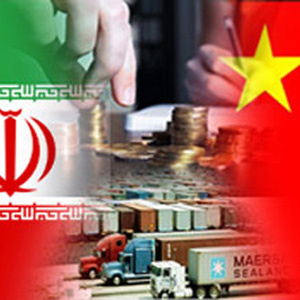Why Is China Backing Iran?
By Mohammad Hossein Malaek, Iran’s former ambassador to China.

Expressions on the face of Said Jalili, chief nuclear negotiator and secretary of Iran’s Council of National Security indicated the toughness of his talks with the Chinese officials last week. Nevertheless, Iran-China-US relations have now moved into a new phase. Beijing’s behavior over ‘the Taiwan problem’ is not difficult to understand: a tenacious stance in the beginning, which gradually wanes out as it moves through in order to avoid continued conflict. China has followed the same pattern on Tibet. That way it stands firm on its position while not blocking chances for negotiations, since re-preparing the atmosphere needs paying a higher price.
China’s position on Iran seems to have changed significantly however. United States has always wanted China to be an ally in imposition of sanctions against Iran, but it is a matter of question if Chinese fully agree with Americans.
Beijing has not been happy with Iran’s announcement of initiating 20 percent uranium enrichment as it regarded the decision a defiance of international norms. Iran, meanwhile, could use its high enrichment know-how as a bargaining chip to extract further concessions from global powers. It failed to do so however, even in its deal with a friendly power such as China.
The diplomatic circumstances formed around Iran’s nuclear program are not desirable for Tehran, and domestic satisfaction is not a good reward which could counter the effect of international pressures. It seems Iranian politicians have gradually accepted this fact.
Back to China, full agreement of the Asian rising power with the Washington over imposition of new sanctions against Iran is unlikely. And if any resolutions are to be issued, Beijing will once again soften UNSC resolution against Iran as much as possible. Current circumstances also prove that for United States, new punishments for Iran are just a matter of propaganda, one to show that global powers are united against Tehran’s nuclear program.
Most possibly, similar to the previous sanctions, the new UN Security Council resolution will single out the name of a number of secondary Iranian enterprises or bank accounts.
Sanctions at this level will see the support of China, but if punitive measures are to enter a higher stage, China will make efforts to fail any possible agreement. Beijing’s stance over Iran’s nuclear program is a function of its national interests however. A pro-Iran stance has enabled China to bargain with other international powers. Such diplomatic games have also brought it ample opportunities in Middle East. Take the case of Iraq’s lucrative oil industry for example. Beijing has managed to sign contracts to exploit oil resources, while Paris, which also disagreed with US attack to Iraq, has found no way into this business. This is, of course, also a sign of the end of unipolar world order and the start of a multipolar era.
China’s position on Iran seems to have changed significantly however. United States has always wanted China to be an ally in imposition of sanctions against Iran, but it is a matter of question if Chinese fully agree with Americans.
Beijing has not been happy with Iran’s announcement of initiating 20 percent uranium enrichment as it regarded the decision a defiance of international norms. Iran, meanwhile, could use its high enrichment know-how as a bargaining chip to extract further concessions from global powers. It failed to do so however, even in its deal with a friendly power such as China.
The diplomatic circumstances formed around Iran’s nuclear program are not desirable for Tehran, and domestic satisfaction is not a good reward which could counter the effect of international pressures. It seems Iranian politicians have gradually accepted this fact.
Back to China, full agreement of the Asian rising power with the Washington over imposition of new sanctions against Iran is unlikely. And if any resolutions are to be issued, Beijing will once again soften UNSC resolution against Iran as much as possible. Current circumstances also prove that for United States, new punishments for Iran are just a matter of propaganda, one to show that global powers are united against Tehran’s nuclear program.
Most possibly, similar to the previous sanctions, the new UN Security Council resolution will single out the name of a number of secondary Iranian enterprises or bank accounts.
Sanctions at this level will see the support of China, but if punitive measures are to enter a higher stage, China will make efforts to fail any possible agreement. Beijing’s stance over Iran’s nuclear program is a function of its national interests however. A pro-Iran stance has enabled China to bargain with other international powers. Such diplomatic games have also brought it ample opportunities in Middle East. Take the case of Iraq’s lucrative oil industry for example. Beijing has managed to sign contracts to exploit oil resources, while Paris, which also disagreed with US attack to Iraq, has found no way into this business. This is, of course, also a sign of the end of unipolar world order and the start of a multipolar era.

